Beauty in the War Zone
Here are two amazing stories that illustrate what I mean.
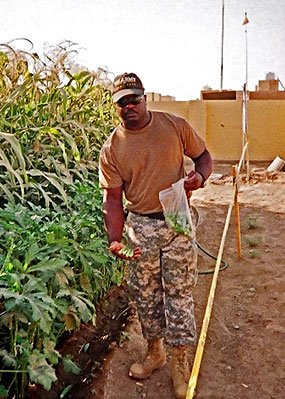 Sgt. Otis C. Wells, base reaction force, 122nd Engineer Company, South Carolina Army National Guard shows off some of the okra he harvested from his garden in front of his living quarters on Contingency Operating Base Speicher near Tikrit, Iraq.
Sgt. Otis C. Wells, base reaction force, 122nd Engineer Company, South Carolina Army National Guard shows off some of the okra he harvested from his garden in front of his living quarters on Contingency Operating Base Speicher near Tikrit, Iraq.By Sgt. Waine D. Haley
133rd Mobile Public Affairs Detachment
TIKRIT, Iraq, Aug. 10, 2006 —
Any war veteran can tell you how important personal time is and how it helps soldiers cope with the separation from home and family.
Sgt. Otis C. Wells, base reaction force, 122nd Engineer Company, South Carolina Army National Guard, uses his personal time to grow a garden in the middle of a desert. “I used my time between missions to work on my garden,” Wells said. “That’s what I like to do … I do it every year back home.”
The native of Wagener, S.C., had to create all the tools needed to work his garden. He found pieces of an old rake and fixed it to use as a hoe. A shovel served as his tiller. The water was carried by hand from the house until a local national helped him configure an irrigation system using a water tank and a trenching system.
The only thing he could not find here were the seeds. Wells’ wife, Diann, sent him the beans, okra, corn and watermelon seeds from home. “The ground here is great … all you need is water,” Wells said. “I didn’t even have to use fertilizer.” Wells said his corn popped out of the ground in a matter of days. The only problem he had was timing. He noted that he planted his crops a little late for the desert growing season, and that the July sun is considerably hotter than in South Carolina at this time of year and difficult to manage.
“I started the garden in April, when I should have started it in February,” he said. “I saw the local farmers were already harvesting their crops and mine were just starting to come up.”
Wells said he is proud of his garden and noted that although he had to overcome some harsh conditions and foreign pests to reach his harvest; the fruits — and vegetables — of his labor were just as sweet here as they are back home.
Thank you to DefenseLink for the Story.
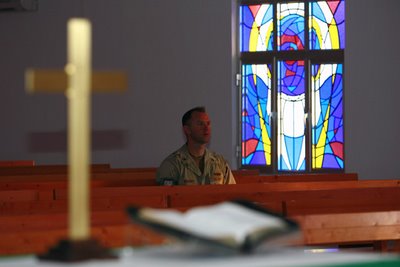
U.S. Navy Petty Officer 2nd Class Donald J. Hodory sits in the newly upgraded base chapel at Al Asad, Iraq, Aug. 30. Hodory, a native of Woodstock, Ill., is a builder with Naval Mobile Construction Battalion 25, 9th Naval Construction Regiment, and made the stained-glass windows for the chapel. Hodory was awarded the Army Commendation Medal for constructing 60 artistic windows for the chapel.
U.S. Marine Corps photo by Gunnery Sgt. Chad McMeen
By Lance Cpl. Brandon L. Roach andLance Cpl. James B. Hoke, 3rd Marine Aircraft Wing
AL ASAD, Iraq, Sept. 5, 2006 —
In the midst of a combat zone it may be hard for one to find beauty, but with the help of one Naval petty officer, servicemembers deployed here will get a little taste of heaven when visiting the base chapel.
Navy Petty Officer 2nd Class Donald J. Hodory, builder, Naval Mobile Construction Battalion 25, 9th Naval Construction Regiment, saw a need and took the necessary steps to make the newly constructed chapel more like a religious sanctuary in the states.
"The idea for stained-glass windows came more as a dream than anything else," said Hodory. "When I heard that the new chapel was being built, it just made perfect sense to fabricate stained-glass windows for it."
The native of Woodstock, Ill., has been in the stained-glass industry for roughly 12 years, and he now owns an architectural stained-glass studio. "The planning phase of this required us to get the supplies donated from stateside companies," said Hodory. "
A friend of mine owns (a stained-glass manufacturing company) in Wisconsin, where they coordinated all the donations and shipped the supplies to the Army's 67th (Air Support Group) headquarters in Nebraska."
"When Hodory first approached me about making the stained glass, I was a little skeptical," said Army Capt. Brian Kane, chaplain, 67th ASG. "The way this entire project fell into place still amazes me. So many people had a part in making this happen. I wasn't even sure that the chapel would be finished by the time our year was over, let alone that it would have stained glass."
With the help of the soldiers with the 67th ASG, Hodory was able to receive the supplies and complete the windows well before his departure from Iraq.
"The gratification I received is far greater than any other project I have worked on in my life," said Hodory.
"There is no other place in the world where spiritual health is more important than in Iraq."For his accomplishments, Hodory was awarded the Army Commendation Medal, a medal that is for servicemembers who go above and beyond in their service to the Army.
"This project has been above and beyond from the start," said Kane. "Hodory had to continue all of his regular duties and find time to work on the windows, sometimes working late into the night. He also took time to teach others some of his skills so they could help, but also because they wanted to learn."
According to Hodory, the journey to the completion of this project was one of the main obstacles that kept him focused upon it.
"I have met so many new people because of this project, and they have all enriched my life in one way or another," said Hodory. "It was unbelievable, the outpouring of help that I received from so many people on this project."
Although many friends were made along the way, Hodory had other motivations to spur him towards the completion of this project.
"My inspiration for the stained-glass windows came from the desire to contribute my talents for something that will have tremendous longevity," said Hodory. "It was an opportunity for the Seabees to leave a unique legacy, along with all the other major accomplishments they have had in the history of this deployment. These windows will remain long after we have returned to our lives in the (United States.)"
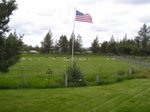


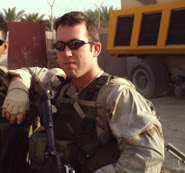










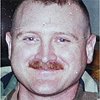












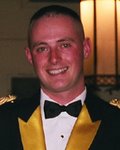






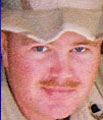
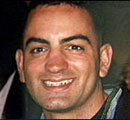





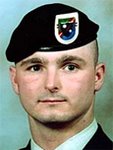





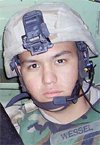






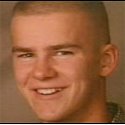
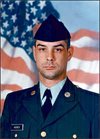


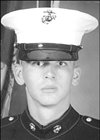











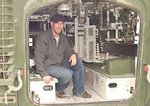
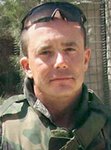



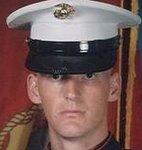
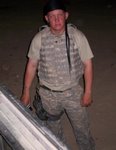
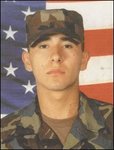


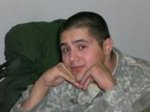







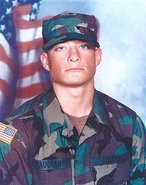
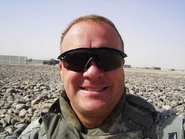
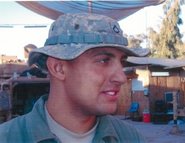


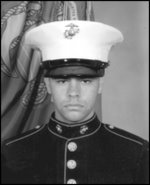
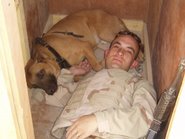
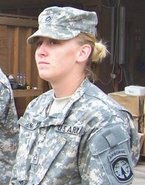

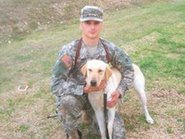

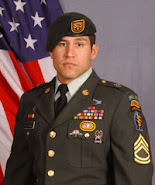





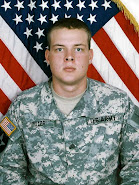




No comments:
Post a Comment